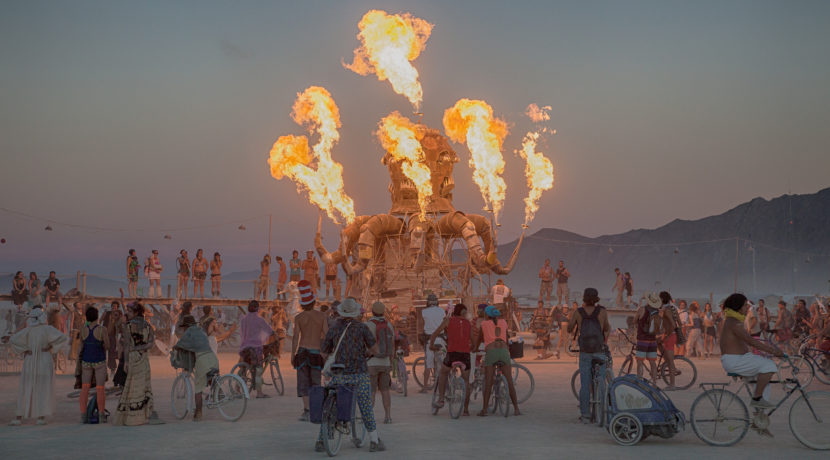Is Burning Man Becoming a Religion?
When Burning Man, the radical arts festival and temporary city erected in the Nevada desert each year, announced that the theme for 2017’s event was “Radical Ritual”—derived from religious symbologies worldwide—many regular attendees viewed this as the next step to becoming a full-fledged religion. Noting that humanity now exists without a defined religion linked to a tribe, festival organizers announced plans to place the “Man” (the large wooden effigy ritually burned at the culmination of the event) inside a symbolic temple before burning it. For those unfamiliar with Burning Man, this seems insignificant, but for many longtime “Burners,” this is anything but cathartic. Some have even asked for a “separation of church and my burn.”

Beyond the dogmas, creeds, and metaphysical ideas of religion, there is immediate experience. It is from this primal world that living faith arises. In 2017, we will invite participants to create interactive rites, ritual processions, elaborate images, shrines, icons, temples, and visions. Our theme will occupy the ambiguous ground that lies between reverence and ridicule, faith and belief, the absurd and the stunningly sublime. The human urge to make events, objects, actions, and personalities sacred is protean.
Our ancestors often looked to the skies for the answers, with the first known gods being the sun and the moon. Rituals and celebrations of our being tap directly into our ancestral desires. Thousands of gods have come before as have thousands of civilizations; the only certainty is that there is no consistency with our beliefs. The gods that we know today will pass and become irrelevant in the future just as our needs, wants, and desires change. Burning Man and celebrations of the like will replace organized religion as people come to desire more tangible spiritual experiences, rather than rigid, political systems. “Beliefs contain, define, and limit meaning. They can reduce truth to a rational commodity,” writes Harvey. “But play can free us to envision truths of which we have no proof or warrant. Such play, as we conceive it, breaks down the distinction that divides belief from make-believe. Whole-hearted and creative play induces self-surrender to experience that is beyond the realm of reasoned thought.” Is there an intersection between such a philosophy and humanism? Certainly, both reject authoritarian dogma and embrace tolerance and individuality. But can humanism reckon with the spiritual side?Tags: Burning Man